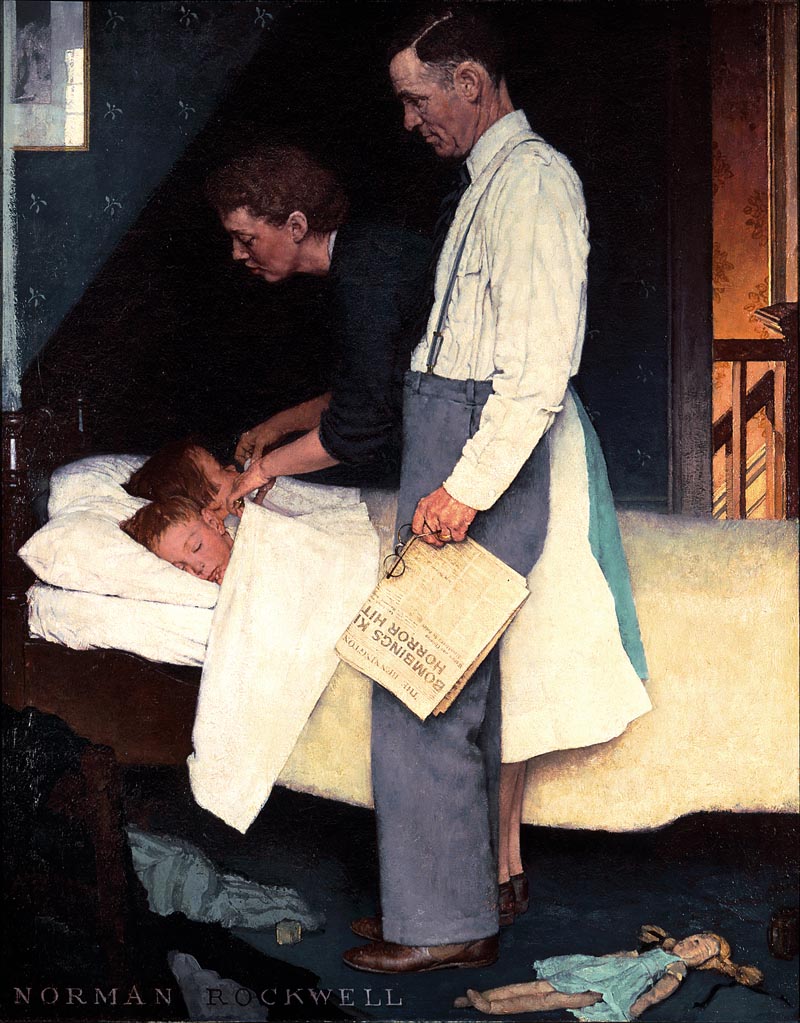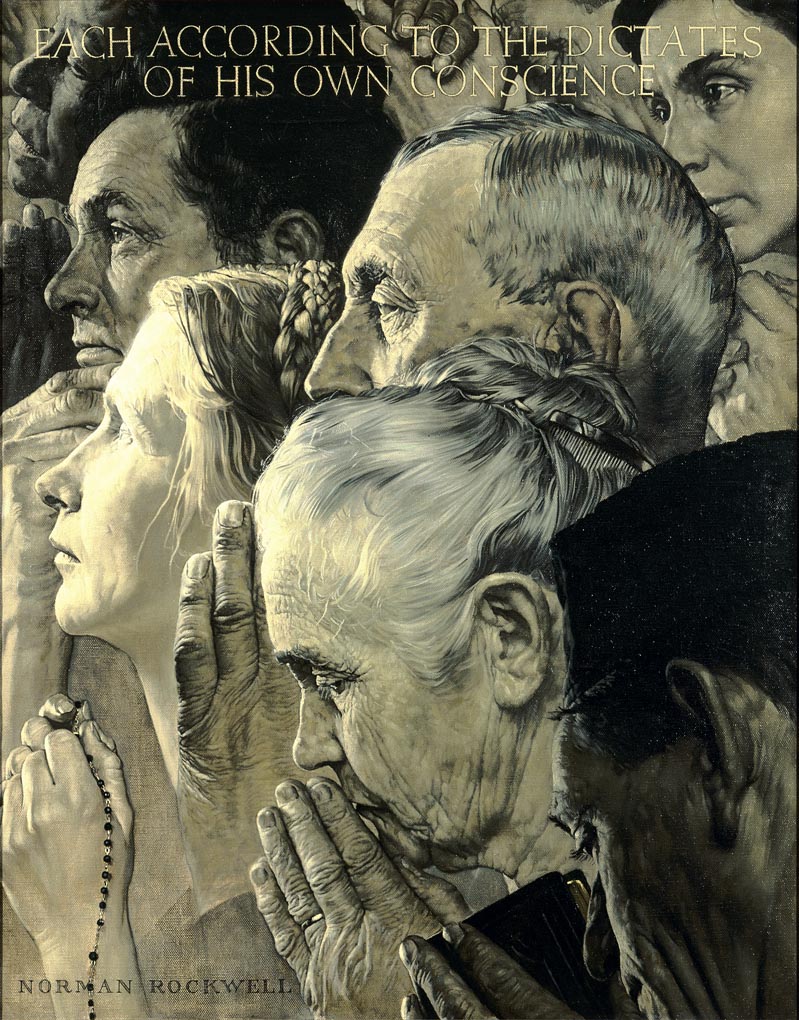todaysinspiration.blogspot.com (2011)
During WWII Norman Rockwell, being too old to enlist, decided that the best way he could contribute was to do posters for the government. To that end he devised the concepts for "The Four Freedoms," based on the Atlantic Charter proclamation issued by Roosevelt and Churchill.
But despite his best efforts, no government official in any department was interested. After many rejections Rockwell found himself making once last appeal; to the Office of War Information "or, to speak plainly," wrote Rockwell in his autobiography, "the propaganda department."

"I showed the Four Freedoms to the man in charge of posters but he wasn't even interested. "The last war you illustrators did the posters," he said. "This war we're going to use fine arts men, real artists."
Finally, almost coincidentally, Rockwell showed the Four Freedoms to Saturday Evening Post editor Ben Hibbs, who immediately, enthusiastically commissioned their completion. "Drop everything else," said Hibbs, "just do the Four Freedoms. Don't bother with Post covers or illustrations."

Rockwell spent six months on the four paintings. 'Freedom from Want' and 'Freedom from Fear' (both above) came quite easily... but he struggled tremendously with 'Freedom of Speech' and 'Freedom of Worship' (below), wanting to make his feelings on these subjects abundantly clearly to all those who would eventually see them. Rockwell painted and repainted these two pieces until he was satisfied he had "boiled it down into a clear, precise statement."

When the Four Freedoms were done, "The results astonished us all." Wrote Saturday Evening Post editor Ben Hibbs. "Requests to reprint came in from other publications. Various Government agencies and private organizations made millions of reprints and distributed them all over the world."
"The Treasury Department took the originals on a tour of the nation... to sell war bonds. They were viewed by 1,222,000 people in 16 leading cities and were instrumental in selling $132,992,539 worth of bonds."
"'Freedom of Worship' and 'Freedom of Speech' hang in my own office, and I love them. They are a source of daily inspiration to me - in the same way that the clock tower of Old Independence hall, which I can see from my office window, inspires me. If this is Fourth of July talk, so be it. Maybe this country needs a bit of Fourth of July the year round."

Hibbs continued, "Visitors... always exclaim over these paintings. They marvel at the depth of feeling which Norman was able to build into those pictures. Many people have asked me whether I regard the 'Freedom of Worship' and the 'Freedom of Speech' as great art. I do. Norman himself probably would disagree.
"He has always modelled himself an 'illustrator' with no pretensions of fine art."
* The Four Freedoms, as reproduced in today's post, appear courtesy of the Norman Rockwell Museum
Freedom from Want, Norman Rockwell. 1943. Oil on canvas, 45 ¾ x 35 ½" Story illustration for The Saturday Evening Post, March 6, 1943 ©1943 SEPS: Licensed by Curtis Publishing, Indianapolis, IN From the permanent collection of Norman Rockwell Museum
Freedom from Fear, Norman Rockwell. 1943. Oil on canvas Story illustration for The Saturday Evening Post, March 13, 1943 From the permanent collection of Norman Rockwell Museum ©1943 SEPS: Licensed by Curtis Publishing, Indianapolis, IN (S569)
Freedom of Speech, Norman Rockwell. 1943. Oil on canvas, 45 ¾” x 35 ½” From the permanent collection of Norman Rockwell Museum ©1943 SEPS: Licensed by Curtis Publishing, Indianapolis, IN Story illustration for The Saturday Evening Post, February 20, 1943
Freedom of Worship, Norman Rockwell. 1943. Oil on canvas, 46” x 35 ½” Story illustration for The Saturday Evening Post, February 27, 1943 ©1943 SEPS: Licensed by Curtis Publishing, Indianapolis, IN From the permanent collection of Norman Rockwell Museum
No comments:
Post a Comment